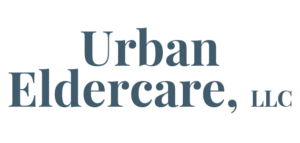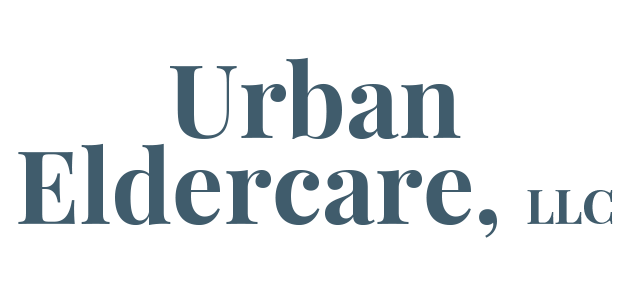
Eldercare emergencies stretch your resources: Time, energy, emotions.
- Is your family dealing with a fall? A hospitalization? A surgery?
- Have you just learned that the person you care for is getting discharged—TOMORROW?
- Is the home setting ready? Are you ready?
Whether they are being discharged from the hospital or a skilled nursing facility, the transition to home is a big leap. Great news in terms of your relative’s healing progress. But also, suddenly a great responsibility for you. And they aren’t necessarily out of the woods.
Did you know up to 23% of older adults discharged from the hospital are readmitted within thirty days?
That means nearly one out of four just wasn’t stable enough yet to fully recover with the resources available at home.
Want to change those odds?
If you would like help in making sure your loved one recovers fully—especially if you have other responsibilities you need to attend to—let us manage the situation. Our team of experienced medical social workers understands the frailty of the newly discharged. Also, your need to attend to your own life! We know what is required to ensure your relative has the support necessary to achieve optimal health and independence.
To learn more, give us a call at 917-514-8074.
Meet with the discharge planner
Bring us in as soon as anyone mentions “discharge.” We will come in, look over the chart, review the discharge notes, and confer with the doctors if needed. With a thorough understanding of the goals of care and the treatment plan, we can coordinate all the support needed at home to ease the transition.
Return to top
Set up the home environment
Even before your relative comes home, we like to meet with you to conduct a home assessment. Are there hazards that could cause a fall? Do any medications need to be ordered? Is there food in the refrigerator? Who will walk the dog? Where is the best place to set up the recovery room? Would a hospital bed be beneficial? How about a Hoyer lift? A bedside commode?
Many durable medical equipment needs will be covered by Medicare if you get the correct request from the doctor. We can facilitate that.
Return to top
Arrange for in-home caregivers
Of primary concern is making sure that the person you care for has the assistance they need when they need it. Whether it’s getting in and out of the shower, meals prepared, medication taken, help getting dressed, or assistance with incontinence care, we arrange for in-home caregivers to provide the necessary support. You can choose from our fully trained and vetted caregivers at Home Care Match. (This is our employment agency set up to bring you the most educated and committed professionals in home care.) Or if you prefer a standard home-care agency, we can recommend high-quality providers in the New York City area.
Return to top
Coordinate care with other providers
Recovery at home often requires coordination with many service providers. Perhaps your loved one now needs a portable oxygen machine. Or it may be the doctor ordered physical therapy twice a week or an assessment by an occupational therapist. We review the discharge plan and work to schedule all the various providers so your relative receives these important services in a timely manner.
Return to top
Medical follow-up
According to research about readmissions, the three strategies most likely to promote a full recovery without the need to go back to the hospital are:
- A medication reconciliation. This involves a thorough review of the medications that were being taken before going to the hospital or skilled nursing facility and comparing it to the medications listed in the discharge plan. If there are discrepancies, we work with your relative’s doctor to be sure that no drugs have been inadvertently dropped from the list.
- A timely follow-up appointment with the doctor. Within a week to ten days, the person you care for should be seen by their regular physician (either their primary care doctor or the specialist related to the problem they were having). This individual knows your loved one’s history and what is “normal” for them. They can look at the changes to the care plan and do a physical examination to be sure that the recovery is progressing as all the professionals would expect it to. If not, appropriate changes can be made to the care plan.
- Knowing the signs of a problem. Many problems that result in a readmission come on gradually over a few days. Depending on the condition, we will teach paid caregivers and/or family members what those signs are and get instructions from the doctor about how to counteract the problem. Also, when to come back into the hospital if necessary.
We are dedicated to your loved one making a solid recovery and will engage the best practices known in the research to ensure that your relative can stay out of the hospital.
Return to top
A sudden hospitalization
Despite best efforts, there are times when a readmission is required.
Or you may suddenly receive a call that Mom or Dad fell and is in the ER.
Let us serve as a patient advocate to be sure the ER team has all the information they need to make a complete diagnosis and come up with a care plan consistent with your loved one’s past treatment and goals of care.
We can communicate with you and keep you up to date in terms of lab tests, diagnoses, and plans for hospitalization and treatment. We can explain the pros and cons and help you make decisions if you are your relative’s healthcare proxy.
We can also work with hospital staff to do our best to be sure your loved one is admitted as an inpatient rather than on an observation basis. (Those on observation status do not receive as many benefits from Medicare and may need to pay for their aftercare privately.) Having a medical social worker on your team ensures that the person you care for will receive all the benefits they have coming from Medicare. You don’t want bureaucratic details to result in expensive bills that could have been avoided.
Want to learn more? Give us a call at 917-514-8074.
Return to top


